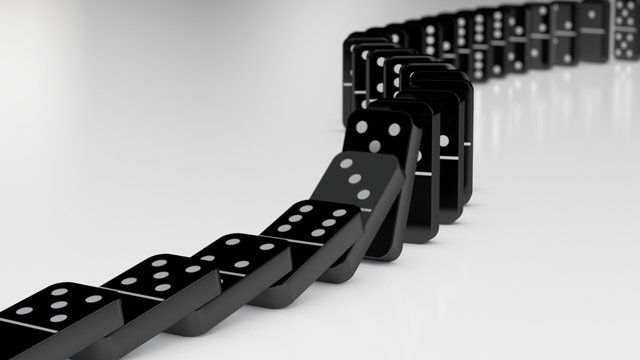Study these to make better decisions and feel better about the decision you make
Lately, I’ve been interested in innocent evil, the evil that results from perfectly innocent choices people make. Moral philosophers generally fall into one of two camps, intentionalist, and consequentialist. Intentionalists argue that you have to judge moral behavior based on intentions because we can’t predict the consequences of our actions. Consequentialists argue that you have to judge moral behavior based on consequences because they’re what matters.
Innocent evil is therefore, moral philosophy’s hardest problem. People with the moral intentions yielding immoral consequences.
A friend asks, isn’t
innocent evil just another name for unintended consequences? That got me
thinking that the innocent evil that interests me is typically the result of
people not paying attention to the potential for unintended
consequences, which got me thinking about compiling a list of laws of
unintended consequences.
This list is incomplete. It’s a start based on 20 years of research in history,
philosophy, biology and the social sciences, a lot of it in collaboration with
bio-philosopher, neuro-scientist and anthropologist Terrence Deacon.
Causes, reasons, and motivations
- Nothing has just one cause. Causes fan out
backward indefinitely in time.
- You can’t know everything about what
motivates others. Don’t say with confidence, “I know why you did it.”
- You don’t even really know everything
about what motivates yourself. Don’t even say with confidence, “I know why
I did it.”
- That you can come up with a justification
for a belief or action is of negligible difference to whether
it’s justified. We can always come up with justifications for a belief or
action. When we pray “God grant me one reason why I’m right,” God always
provides. (I’m an atheist, but you get the picture).
- Reasons and causes are never singular.
Don’t seek the cause, reason or motive. Seek the causes, reasons or
motives.
- When we talk about causes, reasons, and motivations the words “just” and “only” signal ignorance of the potential for unintended consequences. When we say “I only wanted to help,” or “you’re just trying to hurt me,” the terms mean “ignore all other possibilities.” We shouldn’t ignore all other possibilities.
Consequences
- Nothing has just one consequence.
Consequences fan out in all directions over time. Life is like playing
piano with oven mitts on. You go to hit one key and others get hit in the
process.
- Over when the fat lady sings? The fat lady
never sings or, if she does you’re not going to hear it. You won’t know
when consequences are all played out.
- What you interpret to be insignificant may
prove significant. Small differences can make big differences.
- What you interpret to be significant may prove insignificant. Big differences can make small differences.
Educated guesswork
- All decisions are bets that could fail. No
matter how confident you are about a bet, be still more confident that it
is a bet.
- That every choice is a bet that could fail
does not mean that every choice is equally likely to fail. Do not fall
for the doctrine of foregone inconclusion, the argument
that, since any bet could fail, it doesn’t matter how you bet, so you
might as well go with whatever hunch. This doctrine maximizes unintended
consequences. Make educated bets; bets that minimize the likelihood of
failure.
- There are upsides and downsides to any
choice you make, ways it could go right and ways it could go wrong. When
we ignore ways that things could go wrong, the chances of unintended
consequences go way up.
- There are two ways to be wrong about any
choice. Saying yes when the right answer turns out to be no and saying no
when the right answer turns out to be yes. To minimize unintended
consequences, consider both before choosing.
- Nobody is perfect, and everyone makes
mistakes, but not because we’re not smart enough. The world is inherently
unpredictable and all the more so due to the difference between cause and
effect phenomena and means to ends interpretation.
- Our world is not deterministic cause-and-effect like billiard balls. Interpretation is not cause and effect. Interpretation is like reading, which is always open to interpretation. You can read the writing on the wall or in other people’s minds, but what you read is open to interpretation. Interpretation is non-deterministic, so don’t assume you can set up for success the way you set up a cause-and-effect pool shot.
Regret and Blame
- Not all errors can be pinned on someone. A
lot of error is the product of what goes on between people. Things fall
through the cracks, and there are distorting effects in those cracks. A
lot of error is attributable to interaction, not individuals.
- Understand the universal motivation to
externalize negatives and internalize positives. Something in any and all
of us would like to place the burden on to others, and
the benefit on to ourselves. We’d like to think we’re responsible for the
good that comes our way and that others are responsible for the bad that
comes their way, but not the reverse.
- We often go further: We want to them
to pay the price for our mistakes and us to take the gain the benefit of
their effort. We say “I’m the source of their successes, and they’re the
source of my failures.” That we feel this way says nothing about who
should pay for what since pretty much everyone feels this way.
- You are not the exception you naturally
think you are. When you think that someone else has done something wrong,
ask yourself what if you did it? And more, ask yourself what about the
times you did it, because chances are you did, to some degree or other.
- You can regret a choice but don’t assume
that if you had made a different choice, you would have no regrets. Try
saying, “I wish I had done that, which isn’t to say that if I had, I
wouldn’t wish that I hadn’t.”
- When dealing with anything uncertain, you
can bet right and have it come out wrong anyway. If you bet that a coin
won’t come up heads three times a row, you would be betting right.
It would still be the right bet, even if it then came up heads three
times in a row.
- Regret is an emotion that inspires you to
learn from a disappointment. With any bet about whether you should regret
a choice you made, there are two ways to be wrong. You can not regret when
you should, and you can regret when you shouldn’t. In other words, there
will be times when you say “there’s nothing to learn here,” when really
there is, and there will be times when you say “there’s something to learn
here,” when really, there isn’t. Regret is like a smoke alarm telling you
to pay attention. There’s always the potential for false alarms and alarms
not going off when they should.
- N=1. In statistics, N stands for the total population. You take a sample of N and then make a guess at what’s true of N – the whole population. Given time’s inescapable direction forward not backward, you don’t get do-overs. You can try, try again but each time you try it will be at a different time and therefore a different N. It’s not just that you can’t step into the same river twice; you can’t step into the same puddle twice because the second time you step, you and the puddle will be different. With life, N=1. The total population of moments to make the same choice equals one, which means you can say “if only” and try to imagine what would have happened if you had done something else, but you can’t go back and do something else.
Prediction
- A goal is not a plan. “My plan is to
succeed” isn’t a plan.
- Demand is not supply. That you really need
something may motivate you to find ways to get it, but there’s no
guarantee you will find ways. Don’t say “I’m going to beat the stock
market because I really need to.”
- Distinguish two questions: What you would
do if you were in charge of the world vs. what can you do given the world
you’re not in charge of? Ignore the first question because you’re not in
charge of the world.
- We are all some-nicient and some-nipotent.
We have some knowledge and some wisdom. We will spend our lives guessing which
knowledge and power we have and don’t have.
- Meditate on the serenity prayer. Not the God part but the quest for wisdom to know the differences that make a difference. You’ll never be perfect at it. You’ll guess wrong in two ways. You will try to change the unchangeable and give up on changing the changeable, but questing for the wisdom, you’ll do what you can to minimize both kinds of errors.
References
Deacon, Terrence. (1997). The Symbolic Species: Coevolution of language and the brain. New York: Norton.
Deacon, Terrence, (2011). Incomplete Nature: How mind emerges from matter. New York: Norton.





